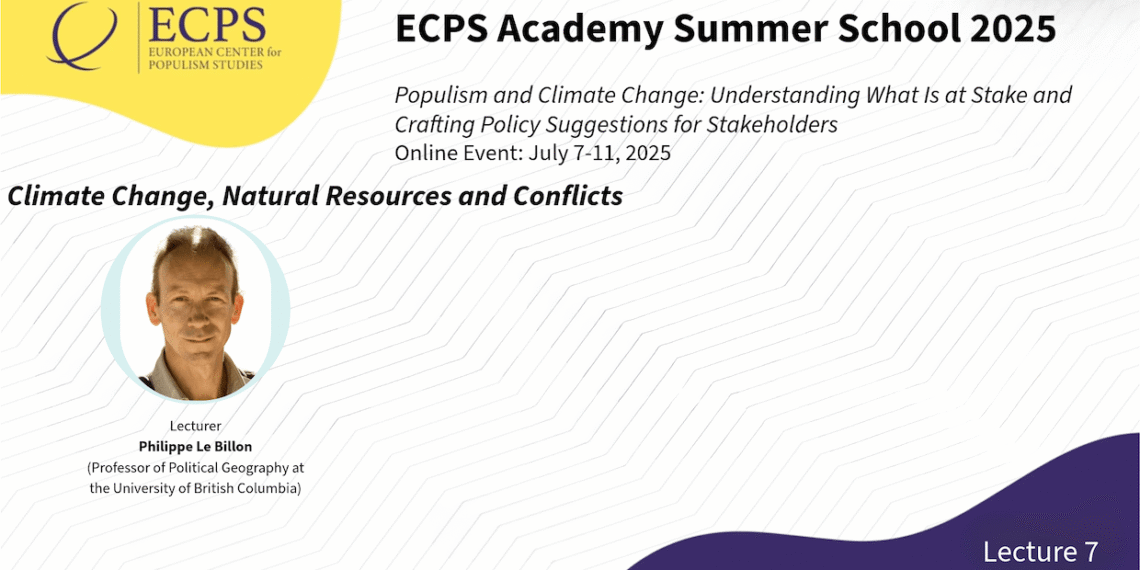Professor Philippe Le Billon’s lecture critically examined how climate-related conflicts emerge from three sources: the impacts of climate change itself, contestation over climate inaction, and backlash against climate action. He argued that climate change operates as a “threat multiplier,” intensifying pre-existing inequalities and vulnerabilities rather than acting as an isolated trigger of violence. He explored how climate activism—while driven by moral urgency—can be framed as elitist and provoke populist opposition, and how the implementation of climate policy can generate new conflicts when perceived as unjust or technocratic. Professor Le Billon warned that “green capitalism” risks reproducing extractive logics, creating new “green sacrifice zones,” and underscored that climate justice requires confronting colonial legacies, class inequality, and structural power relations.
Reported by ECPS Staff
The seventh lecture of the ECPS Academy Summer School 2025—titled “Populism and Climate Change: Understanding What Is at Stake and Crafting Policy Suggestions for Stakeholders”—took place online on July 10, 2025. The day’s featured lecturer was Professor Philippe Le Billon, an esteemed scholar of political geography and political ecology at the University of British Columbia (UBC). Prior to joining UBC, Professor Le Billon worked with prominent institutions including the Overseas Development Institute (ODI) and the International Institute for Strategic Studies (IISS), as well as with environmental and human rights organizations. His research has long focused on the political economy of natural resources, extractivism, and the connections between environment, development, and security—especially in conflict settings. His current work engages closely with environmental defenders, small-scale fisheries, and the socio-political dimensions of the so-called "green transition."
Though Professor Le Billon modestly framed himself as “not a major expert on climate change,” his extensive scholarship on the political economy of resource sectors, conflict, and environmental governance provided a compelling framework for analyzing climate-related conflicts in relation to populism. His lecture, titled “Climate Change, Natural Resources and Conflicts,” examined how climate-related conflicts increasingly shape and are shaped by populist mobilizations globally.
Professor Le Billon invited participants to think critically about climate conflict through a tripartite analytical lens: conflicts driven by the impacts of climate change; conflicts driven by perceived climate inaction; and conflicts triggered by the implementation of climate action itself. Framing his talk within what he described as the current era of “polycrisis”—marked by intertwined crises of climate, inequality, and governance—Professor Le Billon emphasized that climate change must be understood as a political issue embedded in structures of power, inequality, and historical injustice.
By drawing on case studies from around the world, his lecture challenged participants to reflect on the multifaceted relationship between populism and climate politics, showing how climate change is at once a driver of conflict and a contested arena where competing visions of justice, sovereignty, and socio-ecological futures play out.


